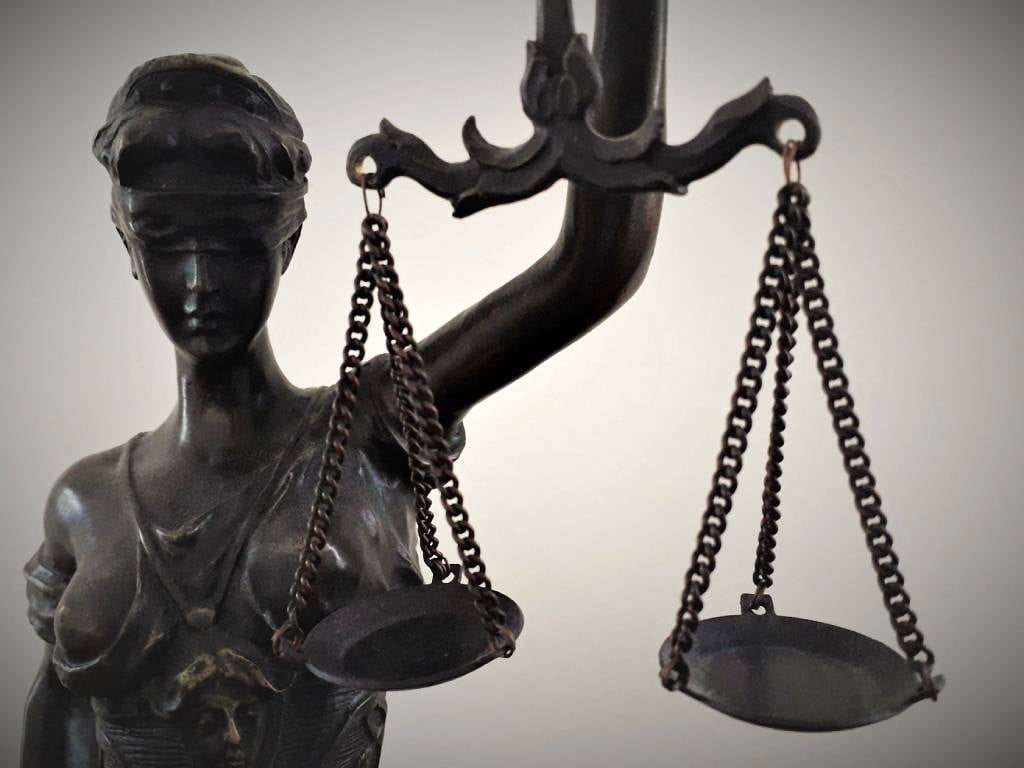OPINION | Death penalty for WhatsApp message – EU condemns blasphemy laws in Nigeria

An appeal is under way for a Nigerian man, Yahaya Sharif-Aminu, a Sufi musician in his early twenties, who is awaiting the death penalty in Kano State in the northern part of Nigeria.
Tragic human rights violations that inherently accompany blasphemy laws, such as those in Nigeria, need to stop urgently, writes Georgia du Plessis.
Yahaya Sharif-Aminu, a Sufi musician in his early twenties, is imprisoned and awaiting the death penalty in Kano State in the northern part of Nigeria. If his appeal fails, he will be hanged. His "crime"? Sharing a WhatsApp audio message allegedly insulting the prophet Muhammed.
Nigeria is one of only seven countries in the world—including Pakistan, Iran, Afghanistan, Brunei, Mauritania, and Saudi Arabia—with criminal blasphemy laws for which a person can be sentenced to death. Blasphemy laws in Nigeria are an offence found under Islamic law and criminalise religious expressions by the mere fact that they are offensive to some. Despite the Nigerian Constitution stating the contrary, the Kano State Sharia Penal Code mandates the penalty of death by hanging for insulting the Quran or any Muslim prophet. Laws such as this Penal Code, are a flagrant violation of the international right to freedom of religion or freedom of expression (especially articles 18 and 19 of the International Covenant on Civil and Political Rights) and a grave and inhumane act of censorship.
Condemnation of blasphemy laws
This week, the Parliament of the European Union in Strasbourg almost unanimously condemned blasphemy laws in Nigeria by adopting a resolution specifically focusing on the case of Yahaya - "blasphemy laws are in clear breach of international human rights obligations, in particular the ICCPR, and contrary to the Nigerian Constitution, which guarantees religious freedom and freedom of expression." During the Parliamentary debate on the resolution, Katalin Cseh, Member of the European Parliament, stated that the "fact that a person can be sentenced to death just for expressing themselves is a travesty of justice…"
Yahaya was first arrested and charged with "blasphemy” in March 2020 accompanied by a mob burning down his home. In August 2020, he was convicted and sentenced to death by hanging behind closed doors by the Hausawa Filin Hockey upper-Sharia court. The conviction was overturned, and a new trial ordered based on procedural irregularities. Sharif-Aminu remains in prison without bail while awaiting the Supreme Court's ruling. If he were to be tried again, it is highly unlikely that he would not be convicted and sentenced to death again.
READ | Blasphemy convictions spark Nigerian debate over sharia law
Many others have also been significantly harmed by Nigeria's blasphemy and religious insult laws. Also referred to in the European Parliament resolution is Deborah Samuel Yakubu, a Christian college student from Sokoto. In May 2022, she was stoned and beaten to death by her classmates and her body burnt because of blasphemy allegations.
Despite this bleak outlook, there is a glimmer of hope. The Nigerian Constitution protects the freedoms of thought, conscience, religion, and expression, including the ability to "receive and impart ideas and information without interference." Unlike the six other countries with death penalty blasphemy laws, Nigeria's Constitution prevents both federal and state governments from adopting any religion as state religion. For example, Sharia law can only be adopted for "personal matters". Also, the Supreme Court is Nigeria's highest court, and its word is final in all cases – including blasphemy laws. This case is historical in that it presents the first-ever opportunity for the Supreme Court of Nigeria to declare blasphemy laws unconstitutional.
Violation of the African Charter
Not only does Nigeria's blasphemy laws violate the Nigerian Constitution, but it also violates the African Charter and the international right to freedom of expression and freedom of religion or belief, especially article 18 of the International Covenant on Civil and Political Rights. This is more reason for the Supreme Court to declare the blasphemy laws unlawful.
READ | Nigeria frees Muslims accused of murder over blasphemy
The case of Yahaya has received significant international attention. For example, the legal advocacy organisation, ADF International, has directly supported this case and its lawyer Kola Alapinni. Advocating for the protection of fundamental freedoms and promoting the inherent dignity of all people, this organisation has been one of the major driving forces to bring attention to the fate of Yahaya and thousands of others subject to these draconian laws. Several major news outlets, such as CNN and BBC have also reported on this matter.
On 28 September 2020, United Nations human rights experts and bodies urged the Nigerian government to overturn the death sentence for Sharif-Aminu saying that "artistic expression of opinion and beliefs, through songs or other media – including those seen to offend religious sensibilities – is protected in accordance with international law. The criminalisation of these expressions is unlawful." His lawyer, Kola Alapinni, spoke on his behalf on the main stage of the 2023 International Religious Freedom Summit and asked everyone to "speak up loudly on Yahaya's behalf".
Now, further international pushback and pressure comes from the European Parliament resolution condemning the fate not only of youngsters like Deborah and Yahaya but also of all those affected by such blasphemy laws and persecuted due to their faith. The resolution calls upon Nigeria to immediately withdraw the use of capital punishment for blasphemy and take steps towards the full abolition of such laws.
These tragic human rights violations that inherently accompany blasphemy laws, such as those in Nigeria, need to stop urgently. The strong condemnation of blasphemy laws in Nigeria by the European Union will hopefully prompt the Nigerian government to release Yahaya, abolish blasphemy laws altogether and free all others convicted under these draconian laws.
- Georgia du Plessis is a Legal Officer at ADF International, and a Research Fellow at University of the Free State.
LA REVUE GAUCHE - Left Comment: Search results for SUFIS

No comments:
Post a Comment